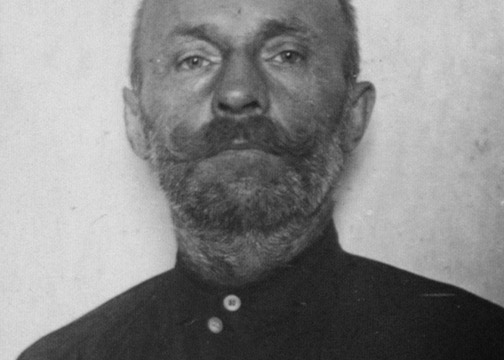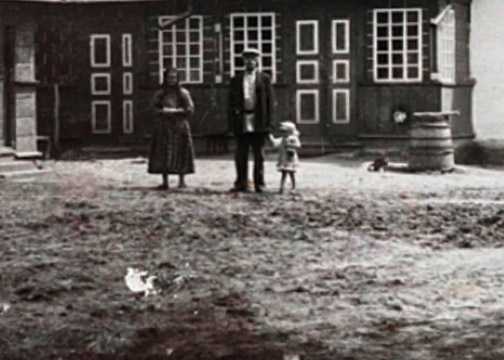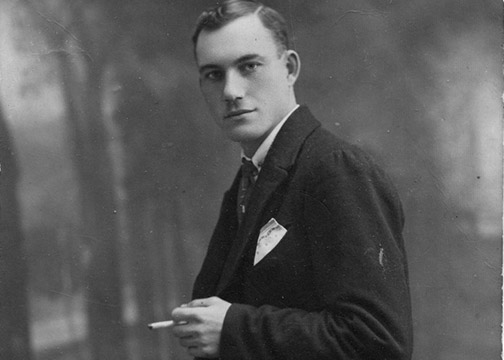The Great Terror in Ukraine, 1937–1938: The persecution of the Czech minority
The collection of documents The Great Terror in Ukraine, 1937–1938: The persecution of the Czech minority is a monumental work by Czech and Ukrainian historians and archivists, presenting for the first time the subject of the harshest period of repression against Czechs in Ukraine, from the perspective of Soviet security forces documents.
The publication of the collection builds on years of work by the Czechoslovaks in the Gulag project and recollections of Soviet repression provided by ethnic Czechs and Czechoslovak citizens, as well as the work of other historians, most notably, Mečislav Borák (viz. Hidden executions), who was involved in the preparation of the collection but unfortunately did not live to see its publication.
The publication, over 1,000 pages in length, contains a representative sample of 100 thoroughly annotated documents produced by the NKVD and other security forces, published bilingually. In the original Russian and in Czech translation, they provide evidence of the form of Soviet state terror employed against Czechs in Ukraine. The work may also be seen as a manual for reading, understanding and translating documents of the Soviet security forces.
The authors of the collection – Jan Dvořák, Anna Chlebina, Andrij Kohut, Anna Morhun and other contributors – based their selections on a wide range of unearthed documents, while also setting out to give as faithful an account as possible of the form of repression against the Czech minority in a given area and a given period. This is borne out by the diverse range of documents of Soviet repressive power. This includes reports on the uncovering of alleged “Czech spy agencies”, statistical reports on the running of mass operations and above all files related to the investigation of individuals – arrest reports, interrogation reports and execution reports.
Among the published documentation the reader will also find materials related to the biggest mass execution of persons of Czech origin on the territory of the USSR, which took place on the holiday of St. Wenceslas, September 28, 1938 in Zhytomyr, when 80 people (78 of them Czechs) were executed.
The authors of the publication and their colleagues from the Czechoslovaks in the Gulag project have been drawing attention to the victims of the Zhytomyr killings for some time. In 2018, for instance, they organised, in conjunction with the Czech Embassy in Kyiv and local Czech expatriate associations, a memorial to that tragic event on its 80th anniversary. They also outlined in detail the story of the execution of Josef Jandura in one chapter in the three-part book series Czechoslovaks in the Gulag and in the second part of a documentary series of the same name. In 2021 they also took part in commemorations for the executed František Froněk and František Jančík.
For the first time ever, documents detailing the cases of other Czechs from other parts of Soviet Ukraine who fell victim to repression in the years 1937–1938 are also published in the collection. These include Karel Křivský, Vladimír Plaštica, František Průša, the married couple Alexej Simirenko and Alla Turová, Jaroslav Veselý.
Some of the most noteworthy documents unquestionably relate to the counterintelligence activities of organs of the NKVD of the Ukrainian SSR against the General Consulate of the Czechoslovak Republic in Kyiv, which existed between June 1936 and April 1938. The Czech authors Jan Dvořák and Anna Chlebina addressed this subject in the standalone article The Czechoslovak Consulate in Kyiv as an object of NKVD interest, 1936–1938. Even before the launch of the Great Terror the consulate had been the target of sophisticated operations by Ukrainian NKVD organs, which attempted to control and gradually paralyse its activities, contributing to its eventual closure. What’s more, there is a clear connection between the measures against the Kyiv consulate and the repression of the Czech minority in Ukraine, which claimed many innocent victims at the turn of the 1940s.
The figure of Pavel Kiselyov, known for the trial of Czech teachers in Kharkiv, appears in the role of NKVD investigator in the collection. A portrait of Kiselyov was written by our Ukrainian colleague Eduard Zub, who after the Russian attack on Ukraine took part in the defence of Kharkiv and later Bakhmut, where he was declared missing on 14 November 2022.
Selected documents and photographs on the subject can be found in a photo gallery.

